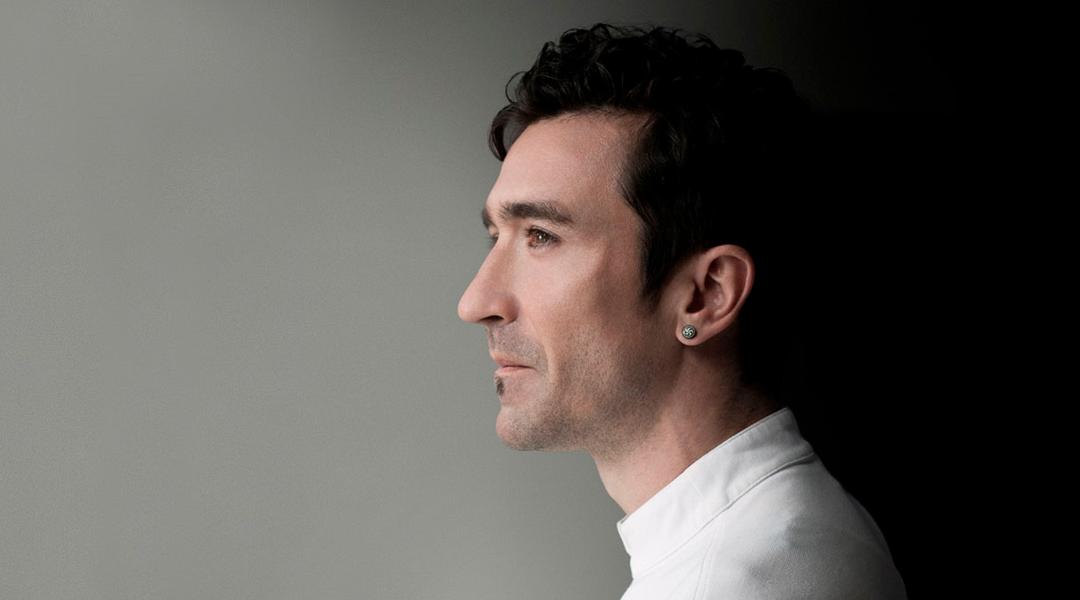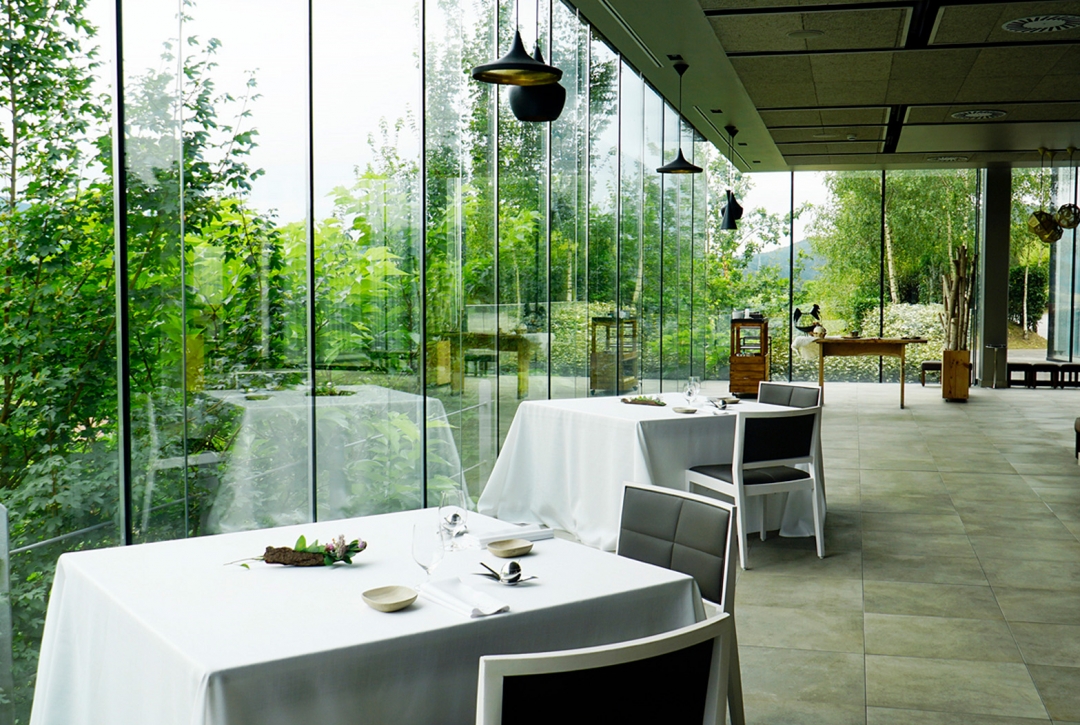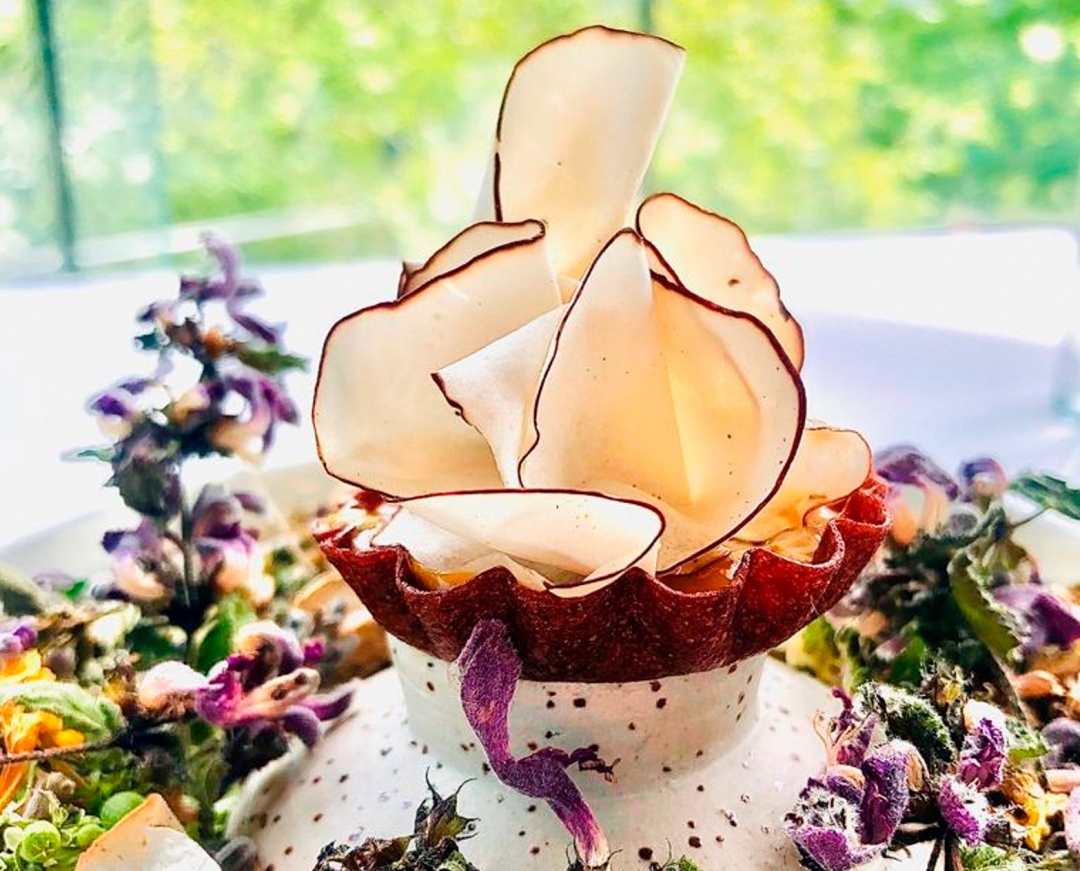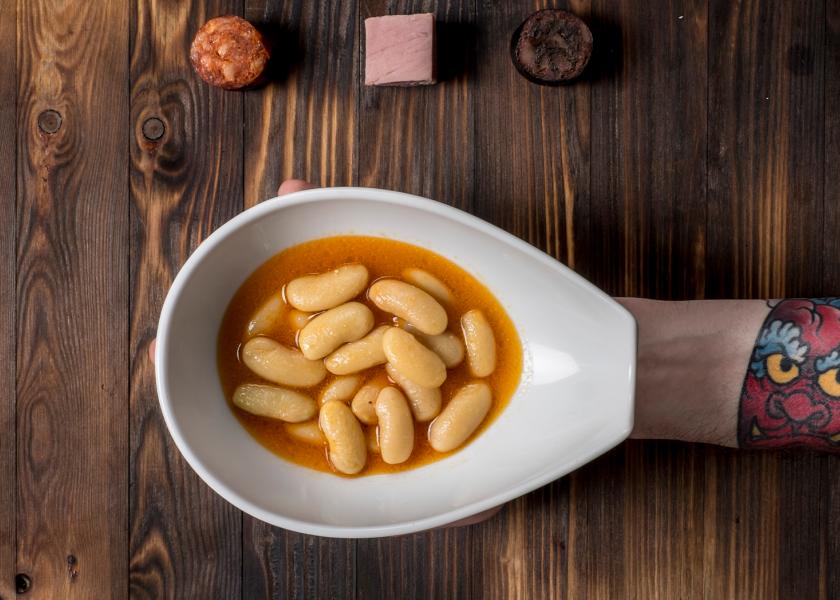Eneko Atxa
Five-star sustainability

A fan of rock, Basque pelota, cycling and nature, a supporter of his tribe and of Athletic Bilbao, the passion that Eneko Atxa infuses into everything he does has granted him five Michelin stars and given Spain the most sustainable restaurant in the world on two occasions: Azurmendi. Sensibility, common sense, roots, and respect for the environment are his key ingredients.
Despite the countless prestigious international awards he has received for his work in front of the stove and his determination to do so as responsibly as possible with the environment, Eneko Atxa (Amorebieta-Vizcaya, 1977) is as seductively down-to-earth as his marvellous gastronomic creations. How does he do it? “I simply remember that I’m still Teresita and Jesús Mari’s son; knowing who my friends are, the vital importance of my family beyond my profession and that the earth will always give back what it has received.”
Based on his firm conviction that “any kind of wealth is at risk of being lost if those who enjoy it don’t appreciate it’s value”, Eneko strives to delve into the taste memory of traditional Basque cuisine to create new dishes that taste of sensibility, common sense, roots, and respect for the environment. These are probably the four coordinates that, together with his innate talent in the kitchen, have led to him becoming one of the most award-winning Spanish chefs within Spain and abroad.
With five Michelin stars (three for his flagship restaurant Azurmendi), his aspirations transcend the simple taste universe to penetrate social responsibility: through Jaki[n], he and his team collaborate with hospitals, develop projects to shine a spotlight on small producers, promote actions to connect art with gastronomy, and even perform studies researching more sustainable ways to eat. But this chef, immersed in his everyday responsibilities (he’s currently taking part in the Gastronomic Forum in Barcelona), has no time to sit back and savour his success.
It’s been 21 years since you left Andra Mari, where you became a professional chef, in your own words. Two decades of success. How do you achieve this progression so flawlessly?
Well, I’ve made some mistakes, but it's true that I’ve tried to enjoy the ride, even though I’ve not always succeeded. There have been times where I’ve been angry or dissatisfied, but even then, I never thought about giving up. I always think about improving, about changing the things I don’t like. And, of course, about continuing to learn daily from the people around me and those who visit us. This is essential to spur on motivation.

Azurmendi, the most sustainable restaurant in the world, with three Michelin stars. © Photo courtesy of Azurmendi
Which influences your goals more: being recognised as one of the best chefs in the world or being one of the most sustainable chefs?
I’d say that I want to be happy working in a responsible way. I aim to cook seeking excellence, in the broad sense of the term.
And this is where Jaki[n] comes in, a hotbed of ideas based on your philosophy. What’s this “cooking a better future” you support?
Jaki[n] is a platform that I was able to create a few years ago that brings me particular joy and that we develop at the same time as the restaurants’ professional activities. We use gastronomy in an intersectional and multidisciplinary way to act directly on all-important models such as sustainability, health through food and social commitment. The goal is to create a socially better future through the world of food and gastronomy.
“I want to be happy working in a responsible way. I aim to cook seeking excellence, in the broad sense of the term”
Is this a conscience-altering ENEKO universe, then?
What we do is just a drop in the ocean. We aim to create projects that seek excellence for everyone. If, on the way, we inspire someone, all the better, but we’re too humble a project to create transformations or changes.
Your leading restaurant, Azurmendi, is a platform that allows you to do what you want: you’ve set up an entire sustainability system around it. In this sense, what has it meant to you and what’s still to come?
It has given me so much, but I’ve also sacrificed things for Azurmendi. In the end, you have to find a balance between what you want and what you can do, and it’s not always easy. I’m still trying to build a balanced present between what I do and what I want to achieve.
“We use gastronomy in an intersectional and multidisciplinary way to act directly on all-important models such as sustainability, health through food and social commitment”
But you haven’t stopped launching new projects. For example, you’ve just opened a new restaurant in Seville, Eneko Basque, and previously also in Tokyo, London and Lisbon. What’s the purpose of this expansion?
Perhaps understanding that, within the world of gastronomy, there are many dialects, unique styles that I also fancy trying and executing. Circumstances have arisen, we had the opportunity, the human resources, and the desire to do all these projects, which are different in each location. Basque, for example, has clear Basque connotations, but with a more informal and modern cuisine; the Eneko restaurants have a more sophisticated vibe; the only restaurant we’ll never replicate is Azurmendi.

Mushroom tart at Azurmendi restaurant, on the outskirts of Bilbao. © Photo courtesy of Azurmendi
Define your own cuisine.
I always say that I only know how to cook the way I do; a cuisine inspired by the flavours in my memory, that I’ve always enjoyed, generally from home, from my own environment, from the legacy that previous generations have built around recipe books that are closely connected to my region. I believe that memory significantly influences everything we do, even if we don’t give up on looking towards the future.
“Basque has clear Basque connotations, but with a more informal and modern cuisine; the Eneko restaurants have a more sophisticated vibe; the only restaurant we’ll never replicate is Azurmendi”
About the future... Any goals for the next five to ten years?
Oh, no! I don’t want to think about 5 to 10 years’ time. Life’s too short. We have to enjoy the journey, not just the destination. And happiness is not at the top of the mountain but in how to climb it. The view from the top might be amazing, but it might be short-lived.
Without a doubt, there’s already much to celebrate. Just out of curiosity, which dish is a must-have at any celebration in the Atxa household?
Kokotxas in pil-pil sauce, a traditional Basque fish stew, served with a white wine, garlic, flour, and olive oil sauce.


